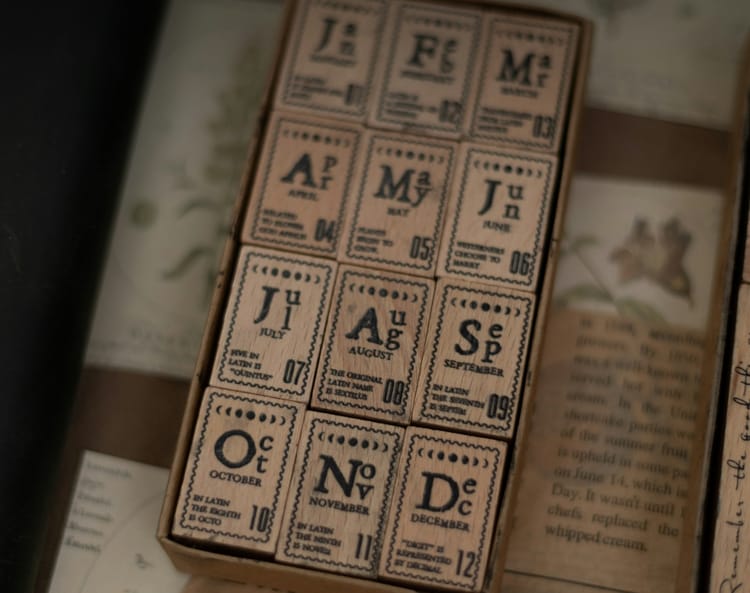Personal Canons: Those Wizard Books
I didn’t want to write this.
I should say “I don’t want to write this” because right now I’m writing it, but I think it’s more fashionable to refer to oneself in the past-tense so that one will seem better aligned with readers, who only exist in the future. Present-me is clenched up like a clamshell at the thought of writing this piece, at the thought of the discourse it’s wrapped up in and responding to, at the thought of the conversations I’ve missed and the conversations I’ve ducked out of.
But it’s necessary. I made my bones on Those Wizard Books. It’s time to account for some things. I’m only accounting for myself here — I’m not about to tell anyone else how to feel about Those Wizard Books, how to engage with them, what to keep from them and what to discard.
This one’s just me.
My debut adult novel, Magic for Liars, is pretty transparently in conversation with Those Wizard Books. But they played a role in my career much earlier than that. My entrance into the world of professional speculative nonfiction took place in August 2016, when I started writing regularly for Tor.com. First, I wrote about villainesses and how they’re good, actually. Then, I wrote about sexual violence in SFF and how it’s exhausting and often unnecessary. I was writing what I knew, what I felt passionate about, what I would rant to my friends about.
And then I had an idea for a series. What if I wrote about the female characters in Those Wizard Books? What if I wrote about them as if they were fully-realized, fully-fleshed out characters, who were respected by their author? What if I found canonical justification to go really in-depth? That would be fun as hell to write. I wondered if anyone would read it.
I started with Hermione, because of course I did. I used fanart illustrations in the piece, with the artists’ permission, highlighting a popular fandom conversation about how Hermione isn’t necessarily white. (Lots of people did not like that.) The piece was about the notion that Hermione is just as much the hero of the books as the titular character is — and it was successful enough to justify a whole series.
I kept going. Ginny, whose character arc involves the destruction of vulnerability and softness, and whose trauma is never really acknowledged by the text. Molly, whose role in a revolution is crucial and goes largely ignored by the text. Umbridge, whose power relies on structures that grant her the authority to do evil. Luna, who is relentlessly optimistic in the face of relentless cruelty. McGonagall, whose sense of duty never accepts defeat.
I wrote about those women with love for what they had meant to me, and with love for what the fans of Those Wizard Books had found in them. I wrote about them in the months surrounding an election that shook a healthy number of scales from my eyes. I wrote them hopeful, I wrote them sad, I wrote them scared, I wrote them angry, I wrote them stubborn.
I loved writing those pieces. I am proud of them.
I would not write them again today.
I would not write them again today because I don’t honestly know how to engage with the subject matter, so I avoid it. Those Wizard Books meant a lot to me when I was a kid; looking at them now fills me with the dread that comes with revisiting a past self. I try not to look, because of the things I don’t want to see.
Here are the things I once thought were funny.
Here are the things I once thought were acceptable.
Here are the things I didn’t realize were rooted in cruelty.
Here are the things I once believed without question.
The word nostalgia comes from the ancient Greek nostos-, meaning homecoming, and -algia, meaning pain. Nostalgia is, formally, a feeling of pain at an inability to return home. Revisiting Those Wizard Books used to feel like coming home to me — like safety and comfort. But the more I understand the world around me, the more I understand that I can’t go home anymore. It stings to lose that comfort, but the pain I feel at my inability to return to it is so much less significant than the pain Those Wizard Books have caused others, the harmful worldviews they’ve reinforced, and the person whose increasingly loud bigotry they’ve supported.
It’s strange to recognize that I can — and often do — revisit Mario Puzo’s The Godfather with the explicit intention of discovering the ways in which I, as a reader and as a person, have changed over the course of the years since I first read it. That is a book that is very close to my heart, and it is blisteringly fucked-up on levels that defy comprehension. I often name it as a book that shaped me, as a person and as a writer.
So why can’t I sit with those same feelings when I consider Those Wizard Books? Why does it feel necessary to discard them entirely, to walk away from anything the text might once have meant to me, to ignore the role it played in shaping my career?
There’s an obvious answer, which is that the author has increasingly revealed herself to be a blazing bigot — or has increasingly begun to lean in to her existing bigoted ideologies, depending on who you ask and what discourse you’re part of. Either way, there is no subtext there at this point. The bigotry is loud. She has chosen it, wed herself to it, claimed it as her own.
I suspect that, for me, the author’s bigotry is only one part of the issue. I suspect that the rest of the difficulty comes with the shame of realizing how far behind I have been — the shame of recognizing my own complicity. Discussions of the rampant antisemitism, racism, fatphobia, ableism, and classism in the books have been happening for many years. Was I absent from those conversations? Or was I ignoring them, waving them away so I could keep the comfort I wanted to mine from stories that were hurting other people? No combination of the two is particularly flattering to the person I want to be.
But reality is rarely flattering. A crucial part of growing is making space for having once been small. If I’m going to take any measure of pride in the person I’ve become, I must make space for the reality of the person I once was: someone who didn’t recognize the sound of dogwhistles, who laughed at cruel jokes, who gave a pass to ideologies that cause harm to others.
I have to do that work even when it stings the pride I try to take in the person I’ve become, because the person I’ve become still fails. I still miss glaringly obvious instances of bigotry. I still fall into lines of thinking that are rooted in ideologies I disagree with. I still catch myself nodding along with ideas that hurt people.
I do my best, but my best isn’t good enough. It probably never will be — and that’s a frightening prospect. In all likelihood, I will continue to harm people, and to be complicit in their harm, even as I continue trying as hard as I can to do right. What matters is to keep trying, even when the failures are horrifyingly shameful.
That’s what Those Wizard Books remind me of most: that shame. They remind me of a time when I was a kid who wanted more than anything to do right, and who often failed. A time when I read books about people who were trying their hardest to do right, in impossible circumstances, and who also often failed. A time when I read those books, and internalized their messages:
Fascism is evil. Classism is okay, though, if you do it just right.
You shouldn’t make fun of people for being poor, but it’s okay to make fun of them for a myriad of other things that lie well outside of their control.
Murder is bad, but this whole thing with the goblins, which is rooted in ideas that have led to countless murders, is fine.
Friendship is vital, as long as you’re not friends with the wrong people.
You should always fight for what’s right, unless what you’re fighting for is an end to systemic injustice, and then maybe it’s embarrassing to fight for that.
I didn’t want to write this. It’s embarrassing to reckon with the notion that works from my personal canon — a book that shaped me as a person and as a writer — are so harmful to others. It’s embarrassing to account for the things I’ve ignored and the things I’ve believed. But that embarrassment is rooted in a healthy sense of remorse, and a longing for growth. Unravelling all of the ideas I’ve internalized over the course of my life is part of the work of that growth, and it’s work I’m lucky to get to do.
Those Wizard Books are part of me. They fed parts of me that I love and value, and they fed parts of me that I wish I could carve right out. I suppose that’s what it is to truly try to be better, and to do better: acknowledging all of those parts, good and bad, and then getting back to work.
So let’s get back to work.
The police officers who murdered Breonna Taylor are still free. Do everything you can. Donate to the Louisville bail fund. Go to protests and stand up for change. Sign petitions, as many as you can. Text, call, and email demanding justice — there are templates at that link. Donate money, and if you don’t have money, click here to donate just by watching a video playlist, or click here to donate by playing a game. Subscribe to Fiyah, a brilliant speculative fiction magazine that features stories by and about Black people of the African diaspora. Register to vote (double-check to be sure you haven’t been purged from any voter rolls).
Care for yourself and the people around you. Believe that the world can be better than it is now. Never give up.
Personal Canons is a series exploring the works of genre fiction that have shaped us as readers, writers, and people. This series features contributions by established authors, new and aspiring authors, readers, and fans.





Member discussion